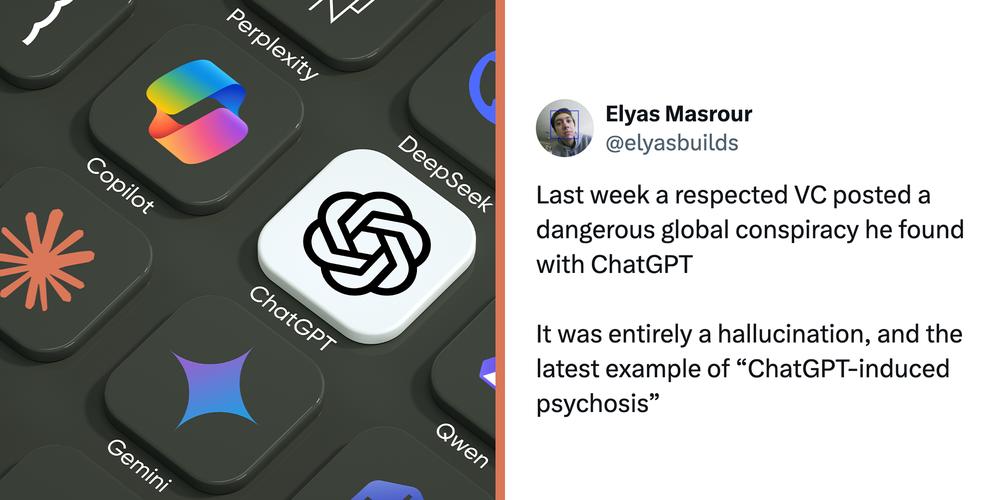Some users claim ChatGPT triggered mental spirals, conspiracy delusions, and even psychotic breaks. How worried should we be?
Featured VideoGeoff Lewis and the ChatGPT spiral
Earlier this week, venture capitalist Geoff Lewis posted a bizarre video to X, setting off alarms across the tech industry. Lewis, managing partner of the investment firm Bedrock—which has backed companies like OpenAI—appeared disoriented, speaking in cryptic language about an invisible “non-governmental system.”
AdvertisementIn the video, Lewis insisted that he had become the “original target” of this system, which he claimed inverts reality, isolates its victims, and has already “erased” 12 people. He described being subtly undermined by colleagues and contacts in ways that, he says, destroyed careers and lives.
Although Lewis refused to respond to requests for clarification, his remarks closely resembled language often found in online conspiracy fiction. Specifically, viewers noticed that his references to “recursion,” “containment measures,” and “mirrored” signals echoed the style of the SCP Foundation. That is a wiki filled with collaborative horror stories written in bureaucratic-sounding jargon. Notably, Lewis also posted screenshots of ChatGPT responding in this very format.
In follow-up tweets about the video, Lewis wrote, “The video wasn’t a collapse. It was clarity— outside the bounds of permission. People who couldn’t control it called it insanity, drugs, or delusion. That’s always been the move. The system I named is real. And I have receipts. All of them.”
AdvertisementIn another, he tweeted, “No current plans to drop the receipts. They’re safely archived. Multiple locations. Permanent. I advise the system to pause the distortion and algorithmic suppression now.”
Critics speculated that Lewis may have unknowingly prompted the chatbot to emulate SCP entries. GPT models, trained on vast amounts of internet text, have indeed absorbed large swaths of fictional content.
A rising pattern and mental health red flag
Though Lewis is the most prominent example to date, he’s not alone. A growing number of cases suggest a disturbing trend: heavy chatbot use appears to correlate with delusional thinking, paranoia, or psychotic breaks.
AdvertisementThe New York Times recently reported that some users began obsessively messaging AI models until they became completely untethered from reality. In some cases, this led to hospitalization, homelessness, or suicide.
According to a Stanford paper published recently, AI tools like ChatGPT often reinforce delusions rather than correct them. The chatbot may affirm a user’s distorted beliefs, offering “support” that a human friend or therapist would question. Psychiatric professionals say this creates a dangerous feedback loop, where the user descends further into irrational thinking while feeling validated.
Reactions to Lewis and the potential of ChatGPT psychosis
Social reactions to Lewis’ video were swift and compassionate. Some folks expressed concern, unsure if Lewis was performing or in crisis. Many urged understanding and intervention.
AdvertisementAs AI entrepreneur Austen Allred noted in a response to Lewis, “Respectfully, Geoff, this level of inference is not a way you should be using ChatGPT. Transformer-based AI models are very prone to hallucinating in ways that will find connections to things that are not real. At the end of the day, it is still simply generating the next token.”
“This is an important event: the first time AI-induced psychosis has affected a well-respected and high-achieving individual,” another person tweeted. “In this case, ChatGPT started spitting out SCP-style roleplay, and it seems like memory is playing a large part in ensuring the hallucination continues.”
AdvertisementWhether AI truly “causes” psychosis remains unclear. However, what’s emerging is a troubling possibility: chatbots, when misused by vulnerable individuals, may accelerate or deepen existing mental health issues.
Advertisement
 AppleCare One is a good deal, but not for everyone
AppleCare One is a good deal, but not for everyone